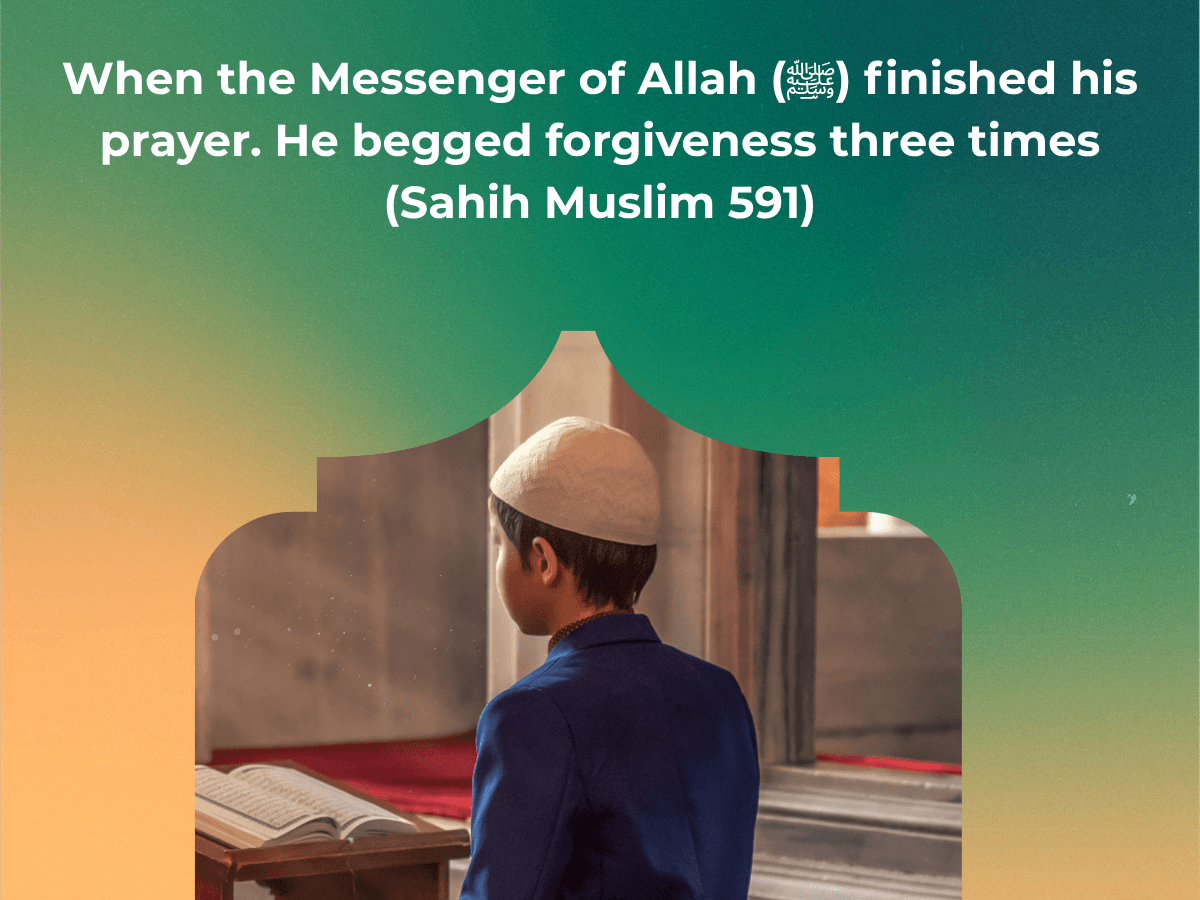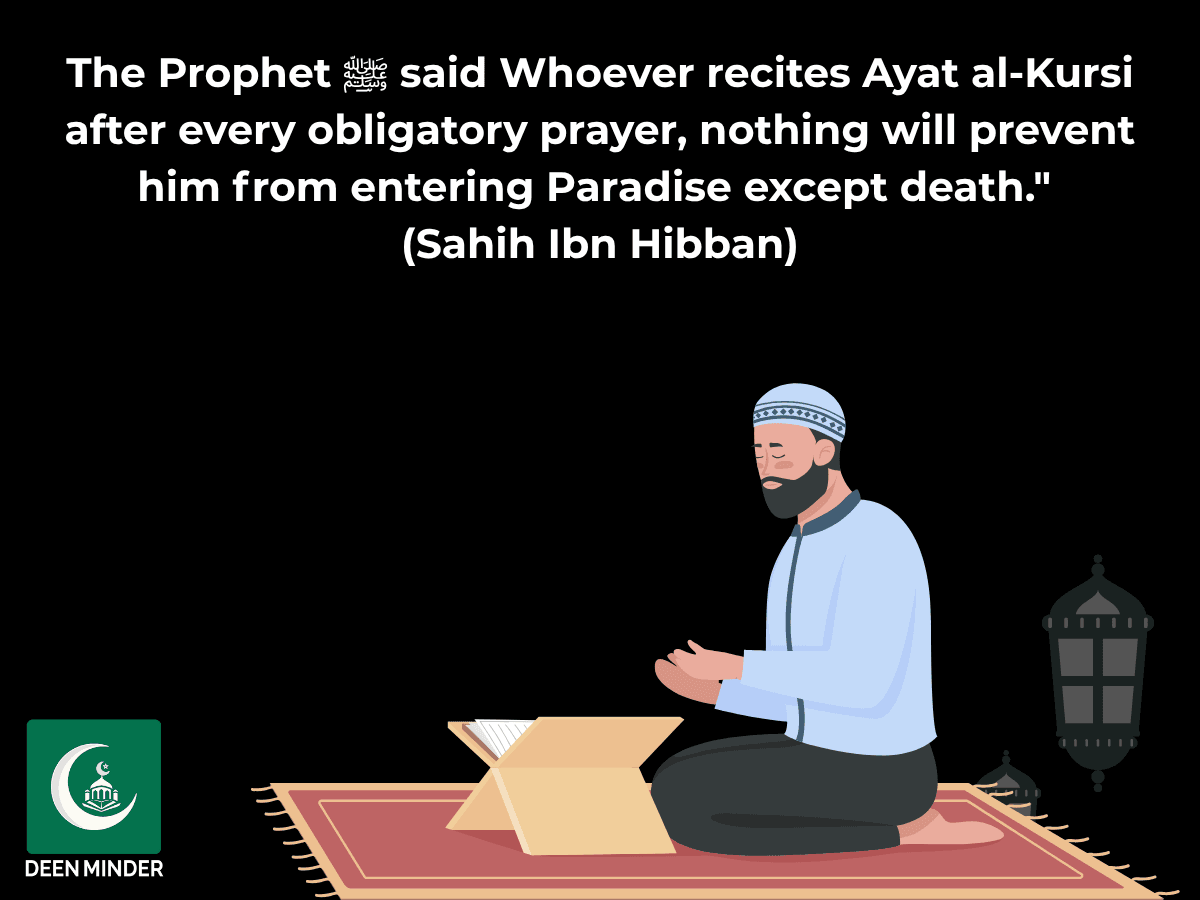Assalaam alaikum, brothers and sisters. It’s quite unfortunate that we see a lot of brothers leaving masjid immediately after solah. And it is well known that our Prophet ﷺ taught us to sit and recite the Adhkar after Salah. It is a powerful Sunnah that completes the act of worship. This remembrance (adhkar after Solah) is not just a tradition; it is a means of seeking forgiveness, protection, and a way to multiply rewards.
Reciting the adhkar after Salah or adhkar after Solat, as they are commonly referred to in various Muslim communities, is a highly recommended Sunnah that the Prophet ﷺ consistently practiced and encouraged. Allah says in the Quran..
“And when you have finished the prayer, remember Allah standing, sitting, and lying on your sides…” (Surah An-Nisa 4:103)
The soul is like a bird, Salah lifts it, but Dhikr keeps it soaring. Without Adhkar, your spiritual elevation is temporary. With it, you maintain closeness to Allah, strengthen your heart, and gain protection from Shaytan. The Messenger of Allah ﷺ said…
“The angels continue to send blessings upon one of you as long as he remains in the place where he prayed, as long as he does not invalidate his wudu. They say: ‘O Allah, forgive him. O Allah, have mercy on him.’” (Sahih al-Bukhari 647; Muslim 649)
Why would anyone want to miss out on such massive supplication from the Angels, the ones who don’t commit sin and are pure? How many minutes will it take us to recite the recommended adhkar after salat? Just a few minutes. We should try to make corrections concerning this aspect.
The Prophet ﷺ never left the adhkar after Salah, and his companions preserved these remembrances tightly too. These adhkar after Solah are not random supplications but are taught to us by our Prophet divinely for seeking forgiveness, protection, and elevation in rank with Allah.
So my dear brothers and sisters, next time you pray, don’t be in a hurry to jump up. Stay seated and move your tongue with remembrance. They are few that you can easily memorize, and pending the time, you can still be using the DeenMinder App till you finish memorizing them. You will find a lot of other benefits in the DeenMinder App that can help you in the aspect of your deen very well.
Let’s now go through the authentic, recommended adhkar after Salat below.
#1 Adhkar after salat (immediately after Taslim)
The first dhirk after solat that the Prophet ﷺ would say immediately after Taslim is
أَسْتَغْفِرُ اللَّهَ (X3)
Astagfirullah
I seek forgiveness from Allah (X3) (Sahih Muslim, 591)
#2 Adhkar after solah
The next dhirk after solat is the following. It should be said immediately after “astagfirullah”
اللَّهُمَّ أَنْتَ السَّلاَمُ وَمِنْكَ السَّلاَمُ تَبَارَكْتَ ذَا الْجَلاَلِ وَالإِكْرَامِ
Allahumma Antas-Salaam wa minkas-Salaam, tabaarakta yaa Dhal-Jalaali wal-Ikraam.
O Allah: You are Peace, and peace comes from You, blessed are You, Possessor of Glory and ]Honour; and in the narration of Ibn Numair, the words are:” O Possessor of Glory and Honour.”
(Sahih Muslim, 592 a)
#3 Adhkar after salah
Among the recommended adhkar after salah is to say subhanAllah 33 times, Alhamdulillah 33 times, Allahu akbar 33 times, and complete it with Laa ilaaha illa Allahu wahdahu laa shareeka lahu, lahul-mulku wa lahul-hamdu wa huwa ‘ala kulli shay’in qadeer.
سُبْحَانَ اللهِ 33
الْـحَمْدُ لِلَّهِ 33
اللَّهُ أَكْبَرُ 33لَا إِلٰهَ إِلَّا اللَّهُ وَحْدَهُ لَا شَرِيكَ لَهُ، لَهُ الْمُلْكُ وَلَهُ الْـحَمْدُ، وَهُوَ عَلَى كُلِّ شَيْءٍ قَدِيرٌ
SubhanAllah – 33 times
Alhamdulillah – 33 times
Allahu Akbar – 33 times
“Laa ilaaha illa Allahu wahdahu laa shareeka lahu, lahul-mulku wa lahul-hamdu wa huwa ‘ala kulli shay’in qadeer.”
The Prophet ﷺ said Whoever says this after every prayer will have all his sins forgiven, even if they are as much as the foam of the sea.” (Muslim 597)
#4 Adhkar after salah
Another narrated adkhar after solah that the Prophet ﷺ used to do after solah is this…
لَا إِلٰهَ إِلَّا اللَّهُ وَحْدَهُ لَا شَرِيكَ لَهُ، لَهُ الْمُلْكُ وَلَهُ الْـحَمْدُ، وَهُوَ عَلَى كُلِّ شَيْءٍ قَدِيرٌ.
لَا حَوْلَ وَلَا قُوَّةَ إِلَّا بِاللَّهِ.
لَا إِلٰهَ إِلَّا اللَّهُ، وَلَا نَعْبُدُ إِلَّا إِيَّاهُ.
لَهُ النِّعْمَةُ، وَلَهُ الْفَضْلُ، وَلَهُ الثَّنَاءُ الْـحَسَنُ.
لَا إِلٰهَ إِلَّا اللَّهُ مُخْلِصِينَ لَهُ الدِّينَ، وَلَوْ كَرِهَ الْـكَافِرُونَ.Lā ilāha illallāhu waḥdahu lā sharīka lah,
lahul-mulku wa lahul-ḥamdu wa huwa ‘alā kulli shay’in qadīr.
Lā ḥawla wa lā quwwata illā billāh.
Lā ilāha illa Allāh, wa lā na‘budu illā iyyāh.
Lahu ni‘matu, wa lahu al-faḍlu, wa lahu ath-thanā’ul-ḥasan.
Lā ilāha illallāhu mukhliṣīna lahud-dīna walaw karihal-kāfirūn.Abu Zubair reported that the holy Prophet ﷺ uttered it at the end of every obligatory prayer. (Sahih Muslim 594)
#5 Adhkar after salat
Another major dhikr after solah is the recitation of Ayatul Kursi.
اللَّهُ لَا إِلَٰهَ إِلَّا هُوَ الْحَيُّ الْقَيُّومُ، لَا تَأْخُذُهُ سِنَةٌ وَلَا نَوْمٌ، لَهُ مَا فِي السَّمَاوَاتِ وَمَا فِي الْأَرْضِ، مَنْ ذَا الَّذِي يَشْفَعُ عِندَهُ إِلَّا بِإِذْنِهِ، يَعْلَمُ مَا بَيْنَ أَيْدِيهِمْ وَمَا خَلْفَهُمْ، وَلَا يُحِيطُونَ بِشَيْءٍ مِّنْ عِلْمِهِ إِلَّا بِمَا شَاءَ، وَسِعَ كُرْسِيُّهُ السَّمَاوَاتِ وَالْأَرْضَ، وَلَا يَئُودُهُ حِفْظُهُمَا، وَهُوَ الْعَلِيُّ الْعَظِيمُ
Allāhu lā ilāha illā huwa al-ḥayyul-qayyūm, lā ta’khudhuhu sinatun wa lā nawm, lahu mā fī as-samāwāti wa mā fī al-arḍ, man dhā alladhī yashfa‘u ‘indahu illā bi idhnih, ya‘lamu mā bayna aydīhim wa mā khalfahum, wa lā yuḥīṭūna bishay’in min ‘ilmihi illā bimā shā’, wasi‘a kursiyyuhu as-samāwāti wa al-arḍ, wa lā ya’ūduhu ḥifẓuhumā, wa huwa al-‘aliyyu al-‘aẓīm.
The Prophet ﷺ said Whoever recites Ayat al-Kursi after every obligatory prayer, nothing will prevent him from entering Paradise except death.” (Sahih Ibn Hibban)
#6 Adhkar after salat
Among the recommended and major adhkar after solah to recite are Surah Al-Ikhlas, Al-Falaq, and An-Nas after each solat except Salatul Fajr and Magrib, for which it is recommended to say it three times.
Surah Al-Ikhlas
قُلْ هُوَ ٱللَّهُ أَحَدٌ۬
ٱللَّهُ ٱلصَّمَدُ
لَمْ يَلِدْ وَلَمْ يُولَدْ
وَلَمْ يَكُن لَّهُۥ كُفُوًا أَحَدٌۢQul huwa Allāhu aḥad
Allāhuṣ-ṣamad
Lam yalid wa lam yūlad
Wa lam yakun lahu kufuwan aḥad
Surah Al-Falaq
قُلْ أَعُوذُ بِرَبِّ ٱلْفَلَقِ
مِن شَرِّ مَا خَلَقَ
وَمِن شَرِّ غَاسِقٍ إِذَا وَقَبَ
وَمِن شَرِّ ٱلنَّفَّـٰثَـٰتِ فِى ٱلْعُقَدِ
وَمِن شَرِّ حَاسِدٍ إِذَا حَسَدَQul a‘ūdhu bi-Rabbi al-falaq
Min sharri mā khalaq
Wa min sharri ghāsiqin idhā waqab
Wa min sharri an-naffāthāti fīl-‘uqad
Wa min sharri ḥāsidin idhā ḥasad
Surah An-Nās
قُلْ أَعُوذُ بِرَبِّ ٱلنَّاسِ
مَلِكِ ٱلنَّاسِ
إِلَـٰهِ ٱلنَّاسِ
مِن شَرِّ ٱلْوَسْوَاسِ ٱلْخَنَّاسِ
ٱلَّذِى يُوَسْوِسُ فِى صُدُورِ ٱلنَّاسِ
مِنَ ٱلْجِنَّةِ وَٱلنَّاسِQul a‘ūdhu bi-Rabbi an-nās
Maliki an-nās
Ilāhi an-nās
Min sharri al-waswāsi al-khannās
Alladhī yuwaswisu fī ṣudūri an-nās
Mina al-jinnati wa an-nās
It is recommended to recite Surah Al-Ikhlas, Al-Falaq, and An-Nas three times after Salatul Fajr and Magrib. (3 times after Fajr and Maghrib).
Benefits of adhkar after Salah
- A Sunnah with enormous rewards
- Protection from Shaytan
- Leads to a peaceful heart and mind
- Brings forgiveness and mercy
- Strengthens the connection with Allah
- Establishes a daily habit of Dhikr
- It is one of the signs of a successful believer
- A means to enter paradise
Had it been that we known the importance and the benefits of adhkar after solah for each dhikr, we would have never tried to miss it. We can check the full guide on the benefits and rewards of each adhkar after salah here.
Making your adhkar after Salah is not just something you can render not non-compulsory, even if you are rushing to somewhere important, it is recommended that you recite them while walking or sitting in your car because it’s a means of building a daily fortress of protection, earning divine closeness, and carrying the light of faith with you throughout your day.
We ask Allah to accept our Salah, forgive our shortcomings, and make our hearts steadfast in His remembrance. Aameen.


